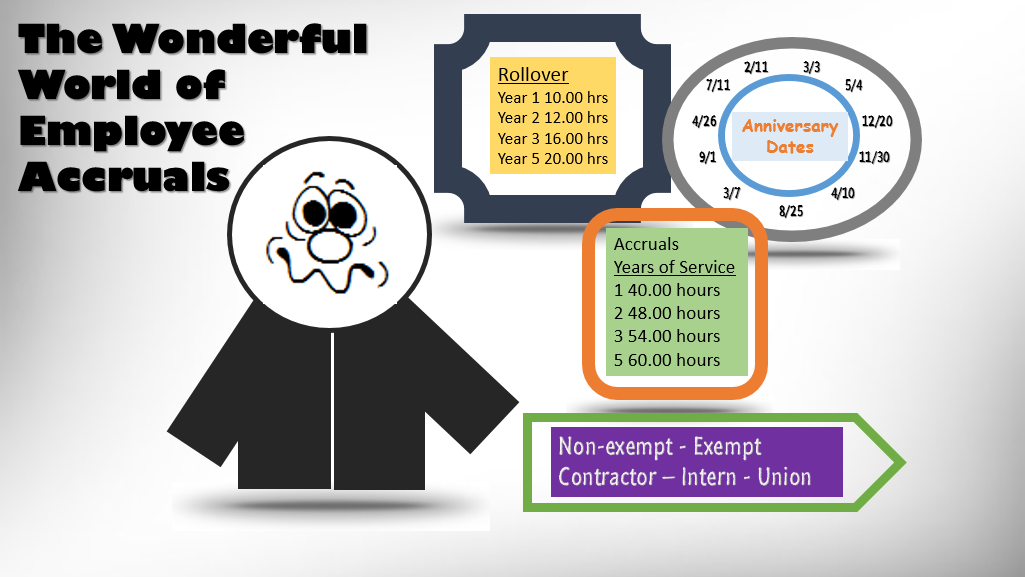Paying people wages for the work they do is a relatively new concept, historically speaking. Six thousand years ago, slaves fed the animals, plowed the fields and cleaned the house. If a nobleman needed more slaves, enslaved their people. No one needed timesheets because no one got paid.
Virginia H.
Recent Posts
Superpowers would be a welcome gift for managers who have to keep track of employee time off. They could clone three replicas of themselves, one for the calendar year, another for the fiscal year and a third for the employee-anniversary year. They could time-travel from holiday to holiday, magically paying everyone who'd earned holiday pay -- and double time for union workers. They could predict the future and know who would need military leave or protected medical leave, and when.
Topics: Time Off Management
Fair Labor Standards Act Compliance: Time & Labor Tracking Then & Now
Posted by Virginia H. Jun 24, 2014 7:00:00 AM on
Federal Labor Standards Act compliance has been a concern of employers since the Act was passed in 1938. But labor rules compliance didn't begin with FLSA compliance. The history of employee time tracking predates the Revolutionary War.
Topics: payroll, payroll time tracking
Overtime rules: the simple, the complex and the scary!
Posted by Virginia H. May 30, 2014 12:49:00 PM on
Complex employee overtime rules make calculating payroll a challenge. Get it wrong, and your workers don't get the pay they're entitled to. Get it really wrong, and your company can get sued or sanctioned.
With years of experience, payroll managers become familiar with the rules they deal with on a daily basis. But unique state requirements and contract provisions in collective bargaining agreements add layers of complexity to already complex labor rules.
U.S. labor rules
State laws can be more restrictive than U.S.laws,but they can't be less restrictive. In many states, these federal laws are the starting point for more complex overtime rules set by state legislatures:
- Employers pay workers time and a half after
Topics: payroll time tracking
Supervisor Upgrade: Are Your Supervisors Using The Right Tools?
Posted by Virginia H. May 23, 2014 6:00:00 AM on
Before we start, we need to ask: "What makes a great supervisor today?" Here's a working definition: he or she has a set of critical skills that get the strongest performance out of his staff and retains the best employees. He also needs to strive to develop and improve these skills.
1. Focus on retention. The job market is heating up, and employers are once again competing for top talent. In this environment, supervisors have to always have a handle on who are their best people and make sure they feel challenged and empowered.
Topics: Employee management
If you're one of the millions of workers who track their time on timesheets, you know how tedious it can be to account for every minute of your workday. Tracking your time may be monotonous, but timesheets are an essential business tool. Since the invention of the clock, virtually every industry and profession has measured the value of labor in shifts, hours and minutes. Timesheets make these measurements possible.
Ancient wages
The modern timesheet has its roots in ancient history. The Code of Hamurabbi, a Babylonian treatise written in 1772 BC, set a typical worker's daily worker's wage at 6 grains of silver. That's about $0.25 per day, without adjusting for 3,786 years of inflation. Some trades earned less than a laborer. A tailor earned 5 grains of silver per day. A carpenter, 4 grains.
The Time Clock
Topics: timesheet, Timesheet Software, time tracking








